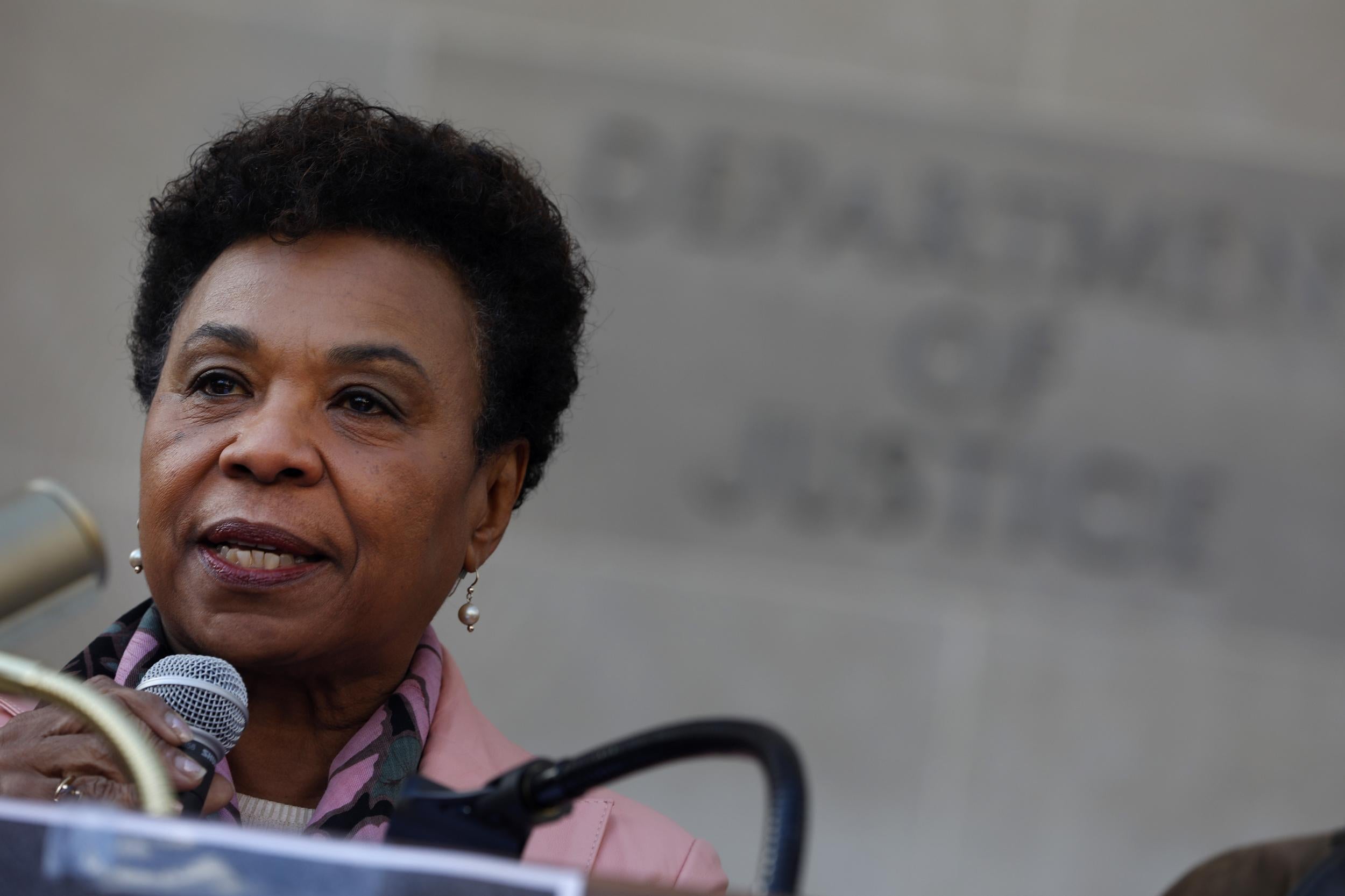Republicans quietly pull plug on popular amendment restricting Trump's ability to wage war
The amendment's author calls the move 'underhanded and undemocratic'

Your support helps us to tell the story
From reproductive rights to climate change to Big Tech, The Independent is on the ground when the story is developing. Whether it's investigating the financials of Elon Musk's pro-Trump PAC or producing our latest documentary, 'The A Word', which shines a light on the American women fighting for reproductive rights, we know how important it is to parse out the facts from the messaging.
At such a critical moment in US history, we need reporters on the ground. Your donation allows us to keep sending journalists to speak to both sides of the story.
The Independent is trusted by Americans across the entire political spectrum. And unlike many other quality news outlets, we choose not to lock Americans out of our reporting and analysis with paywalls. We believe quality journalism should be available to everyone, paid for by those who can afford it.
Your support makes all the difference.Republicans have stalled a bid to restrict Donald Trump's ability to wage war, in a move the bill’s sponsor is calling an “underhanded and undemocratic”.
Congresswoman Barbara Lee was pleasantly surprised earlier this month when the bipartisan House Appropriations Committee passed her amendment to revoke the Authorisation for Use of Military Force (AUMF) – a 2001 law that allows the US president to undertake war against al-Qaeda and its affiliates without Congressional approval.
But her hopes were dashed on Tuesday night, when the House rules committee stripped the amendment from the larger National Defense Authorisation Act (NDAA). The full House had voted to pass the NDAA just days before.
Taking to Twitter, the Representative lashed out at House Speaker Paul Ryan.
“Ryan stripped my 01 AUMF repeal amdt from DOD Approps in the dead of night,” Ms Lee tweeted. “This is underhanded & undemocratic. The people deserve a debate!”
In a statement on her website, the Representative accused Congress of being “missing in action on matters of war and peace for nearly sixteen years”.
“Refusing to debate and vote on our ongoing wars is an abdication of our constitutional responsibility,” she said. “Our men and women in uniform deserve better.”
Republican leaders defended the move, saying the the amendment should have been taken up by the Foreign Affairs Committee, not attached to the NDAA. The committee used a so-called "deem and pass" rule to strip the amendment without bringing it to a debate on the floor.
The rules committee replaced Ms Lee’s amendment with one written by Republican Representative Tom Cole, which requires the president to request a renewed authorisation from Congress and provide legislators with a strategy and budget for defeating Al-Qaeda, the Taliban, and ISIS.
“Congress owes it to the American people and our men and women deployed for battle, to reaffirm our national commitment to the missions we are sending our soldiers into,” Mr Cole said in a statement.
The Speaker, meanwhile, had pushed for the AUMF to be taken up in completely separate legislation, calling Ms Lee’s amendment “irresponsible” and a “mistake”.
A spokesperson for Mr Ryan told Talking Points Memo that the amendment “would have left service members in the field without an authorisation to defeat al-Qaeda and ISIS”.
She added: “There is a way to have this debate but an amendment that endangers our national security is not it.”
Ms Lee’s amendment would have revoked the President’s ability to declare war starting eight weeks after the NDAA passed. The eight-week period would have given Congress the opportunity to pass a new military force authorisation if desired.
The original AUMF, enacted shortly after the 11 September terrorist attacks of 2001, has been used to authorise conflicts in Afghanistan, Iraq, and Syria.
According to the Congressional Research Service, the AUMF has been used to justify military action more than 37 times in 14 countries since 2001.
After her amendment’s surprise victory in the House earlier this month, Ms Lee told Politico she felt her fellow Congress members had changed their minds on the blanket authorization.
“People are beginning to really recognise, Democrats and Republicans, that the 2001 resolution was a blank check,” she said. “We've got to reassert Congress' role and do our job. We've been missing in action.”
Join our commenting forum
Join thought-provoking conversations, follow other Independent readers and see their replies
Comments